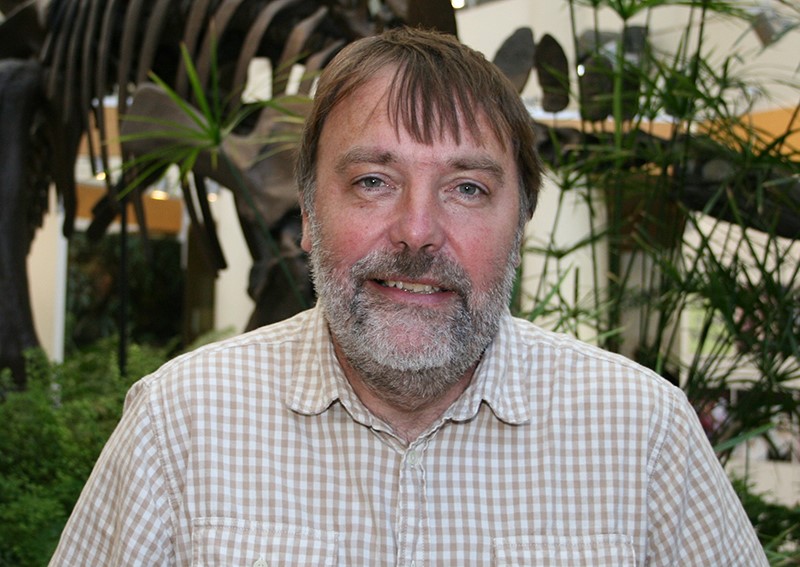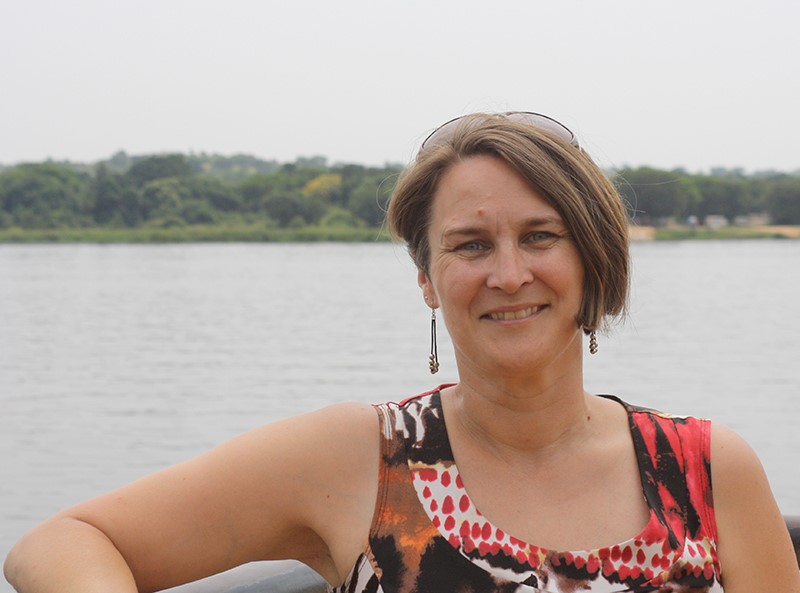
Important environmental issues tackled in two timely new USask courses
Two timely new courses to be offered at the University of Saskatchewan this fall will address environmental and sustainability issues of global importance.
By Shannon BoklaschukThis article has been reposted from the Arts & Science website. View original article here.
Two timely new courses to be offered at the University of Saskatchewan (USask) this fall will address environmental and sustainability issues of global importance.
The courses—GEOL 498: Geoscience of Green Energy and the Digital Economy and GEOG 898: Social Hydrology—will be taught to undergraduate and graduate students during the 2021 Fall Term by scholars in USask’s College of Arts and Science.
Dr. Kevin Ansdell (PhD), a faculty member in the college’s Department of Geological Sciences, developed GEOL 498 to provide a geoscience slant on important issues of global significance. The class will also be offered to graduate students as GEOL 898.
“Climate change is at the forefront of the minds of populations, policy-makers and politicians around the world, and there is an international drive to reduce the emission of greenhouse gases into the atmosphere,” said Ansdell, who currently serves as the president of Geoscientists Canada.
“Modelling suggests that net-zero emissions of greenhouse gases by 2030 to 2050 will limit warming and reduce the costs of mitigation related to weather events—for example, the scorching heat in western North America and the sudden devastating floods in the Rhine watershed of western Germany—as well as rising sea levels and ecosystem changes.”
.jpg)
Ansdell said the transition to green, clean, sustainable energy sources away from fossil fuels “is considered to be vital,” and targets have been developed at the provincial, national and international levels to increase the proportion of green energy sources in power generation and to speed up the electrification of transportation infrastructures.
“The latter includes an ambitious goal of 30 per cent of global market share for electric vehicles by 2030, with related increasing demand for storage batteries. The variety of green energy sources also allows power generation to be more localized, which will potentially provide secure energy sources for isolated communities,” he said.
“The connection between communities is enhanced by the enormous increase in global digital networks, driving economic activity into the future—all of which is powered by electricity sources. Electricity generation is the cornerstone for the rapidly expanding digital economy and the global transition to green energy, driven by attempts to reduce both greenhouse gas emissions and the use of non-renewable resources.”
Ansdell said his new course is unique in that it will consider the geology behind various green and clean energy initiatives, and students will study the definition, location and importance of green energy sources such as solar, wind, geothermal, hydroelectric, tidal and nuclear. The geological characteristics of the energy sources will be considered, along with the demand and distribution of the critical natural materials required and other issues related to the generation, storage and distribution of the energy produced, and the importance of recycling and waste disposal.
Local, national and global examples will be provided to students “in order to emphasize that an understanding of geology is important to the success of green energy initiatives,” Ansdell added. The course will feature lectures and student-led discussions of articles, texts and relevant national and global news and policy announcements, all with a geoscience slant. The prerequisites have been designed so that students with a variety of academic backgrounds can enrol in the course, and students should contact Ansdell if they are interested in finding out more.
Ansdell first taught a course on the geoscience of green energy in 2017, as part of the Saskatoon Seniors Continued Learning (SSCL) program. He wanted to teach a similar course to undergraduate and graduate students and developed a course proposal last year as a result.
“The timing is perfect, as countries, institutions and companies around the world have developed significant goals to reduce the amount of greenhouse gas emissions and increase the electrification of transportation and many other businesses. For example, the federal government has targeted 2035 as the last year that gasoline and diesel-powered cars, SUVs and light trucks can be sold,” he said.
Ansdell noted that his new course also aligns with a new program in the Department of Geological Sciences called Environmental Geoscience. Environmental Geoscience is the scientific study of relationships between Earth processes, human activities and the environment by integrating knowledge of physical, chemical and biological aspects of the Earth system.
“The course will also examine the recent environmental impacts of human activities, including extraction of energy and mineral resources, and explore ways to minimize these impacts, which will attract students interested in the sustainable development of natural resources,” he said. “The new course fits nicely into this program and will also be acceptable as a course to meet the academic requirements of professional registration as a geoscientist.”
In the Department of Geography and Planning, meanwhile, Dr. Corinne Schuster-Wallace (PhD) will discuss environmental issues, such as climate change and human impact on the planet, through the lens of hydrology. Her new course, GEOG 898, will explore the feedback mechanisms between hydrological and social systems, implications for sustainable water management and sustainable societies, and the theoretical frameworks that have emerged at this interface. The goal of the course is to help students understand and assess the nature of interactions between the systems in order to manage them simultaneously and in concert with each other.
“The course focuses on interactions between people and water,” said Schuster-Wallace, a faculty member in the Department of Geography and Planning and a specialist in issues of water and health.
.jpg)
The course is another example of USask’s global leadership in water resources research and training. In addition to her role in the department, Schuster-Wallace is also associate director of Global Water Futures, a large multi-university research program hosted by USask that is focused on understanding how the changing climate is impacting water resources in cold regions, such as Canada. She is a faculty member in the Global Institute for Water Security (GIWS) at USask, the top water resources research institute in Canada and one of the most advanced hydrology research centres in the world. Previous USask hydrology courses taught by faculty members in the Department of Geography and Planning have attracted international attention.
Schuster-Wallace also noted that the Department of Geography and Planning recently established an undergraduate hydrology program and a stream in the Bachelor of Arts and Science Health Studies program on Changing Climates and Health. The new Bachelor of Science in hydrology program was developed for students who are interested in how the hydrological cycle controls the wide variety of natural processes on Earth. The Changing Climates and Health program builds a foundation of ecosystem, climate change and health science to explore public health implications of, for example, natural disasters or for Indigenous populations. A new Certificate in Water Science is also available, providing students with theoretical and practical training in hydrologic science.
“The GEOG 898 course is unique because students will learn about the hydrological system and the social system, how the two systems are coupled, and what this means for our relationships with water, how water impacts our health and wellbeing, and how we impact water resources," Schuster-Wallace said.
Seminars will include group discussions, multimedia presentations, interactive exercises and problem-based learning to provide foundational information while encouraging active participation.
“This course is more relevant than ever when you consider the floods and droughts that have affected many communities across Canada in the past year as well as the inequitable impacts of poor water access for many Indigenous communities and the indigent population in Canada during the COVID-19 pandemic, and pollution and climate change impacts on our water resources,” she said.
